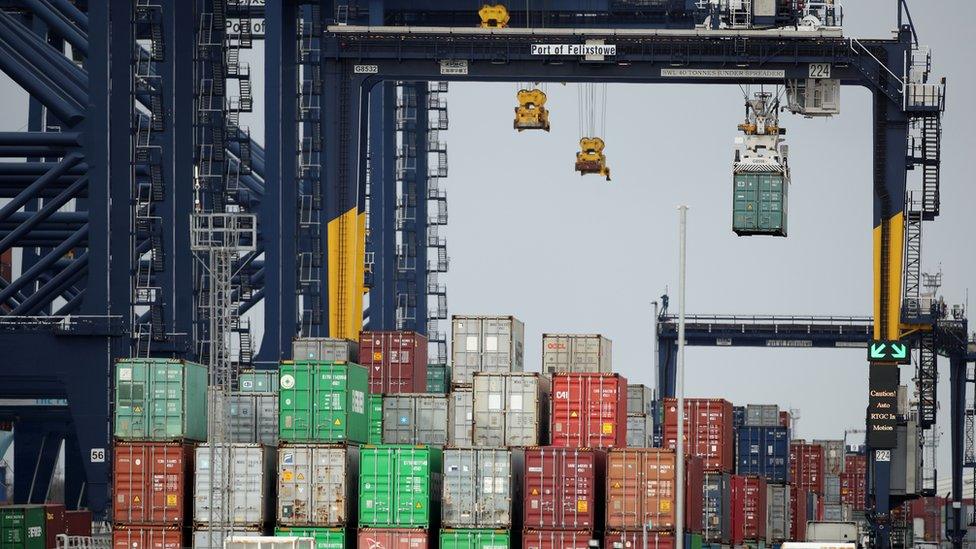Brexit: Food safety checks on EU imports still unknown
- Published
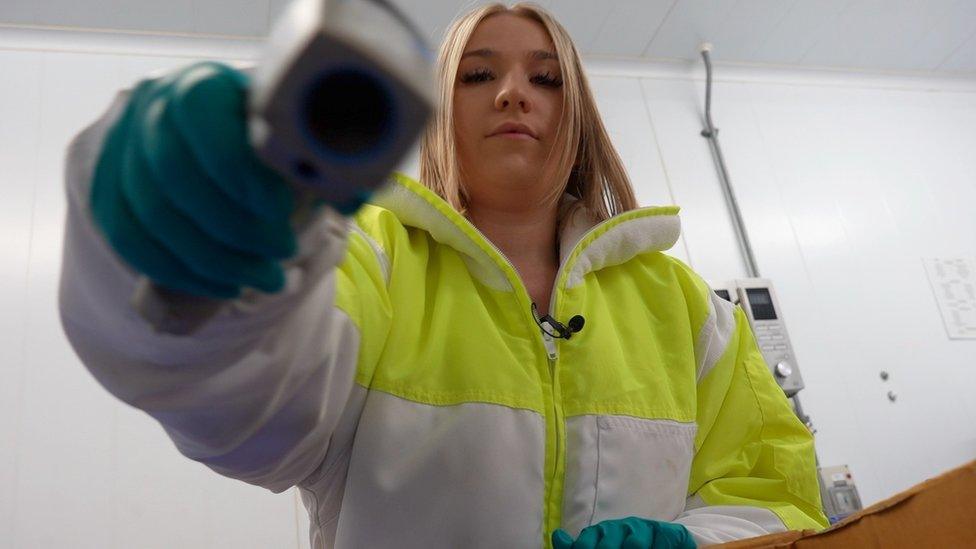
Checks on EU food imports are one of the final parts of the Brexit transition
The food inspection team at Britain's biggest container port says the lack of clarity around post-Brexit checks on imported food puts them in a "difficult position".
Paperwork for European food imports will be inspected from October, with physical checks following in January.
The government says it is working on the inspection guidelines.
But Suffolk Coastal Port Health Authority says not having them is "really quite significant".
At the moment only food coming from outside the European Union (EU) is inspected.
The checks at ports like Felixstowe in Suffolk have already been delayed by 18 months, because of government concerns about the potential burden on businesses.
The cost of inspections on EU food will be passed on to importers.
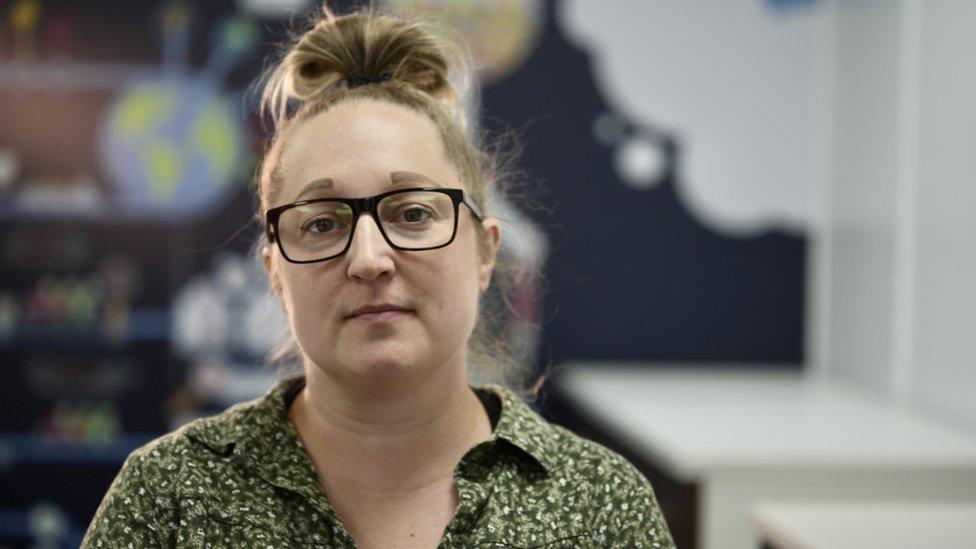
Hannah Panting from the Suffolk Port Health Authority has four months to prepare for the introduction of EU food import checks
According to Department of Food and Rural Affairs (Defra), nearly half of the food eaten in the UK is imported - and more than two-thirds of that comes from EU countries.
Operations Manager Hannah Panting says they have been told by Defra that the health authority will have to check between 1% and 30% of EU food imports. But it is hard to prepare, she says, without knowing the exact percentage.
"The unknown is very difficult to work with," she says. "It's nice to be able to have a plan and know what your targets are.
"Having a low level of checks means I might not need so many staff, whereas if they (the checks) increase significantly, then obviously we need to turn things around in a timely manner and get the trade flowing through smoothly."
"It puts me in quite a difficult position."
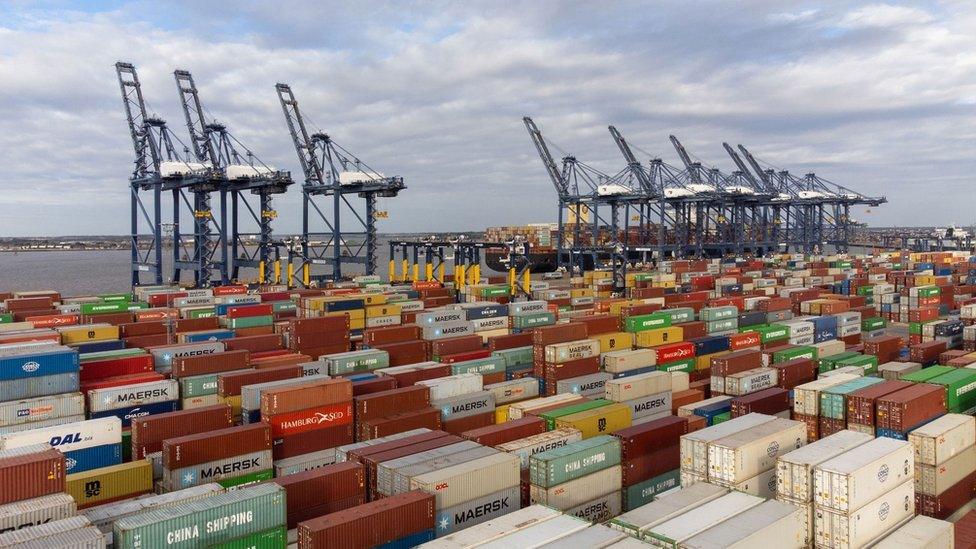
The checking of EU food imports is one of the remaining parts of the Brexit transition
Since Brexit, Britain has got rid of just eight out of 2,400 EU food safety laws.
Extra workers were recruited to the port health authority when the government planned checks on EU food imports in October 2022.
Delays meant staff had to be redeployed within the local council which runs the Port Health Authority. Ms Panting hopes to use these workers but warns she still might need more staff.
"We have trailers that arrive on a ferry at midnight in Felixstowe (from the EU)," she says, adding those checks still needed to be done "in a timely manner" so as not to "delay trade".
A Defra spokesperson said they were confident the new inspection regime would strike "the right balance between protecting the UK's biosecurity and supporting businesses moving goods into Great Britain".
"We have been listening closely to the feedback we have received from stakeholders and will carefully consider what more we can do to support business readiness for the introduction of new controls," the spokesperson said.
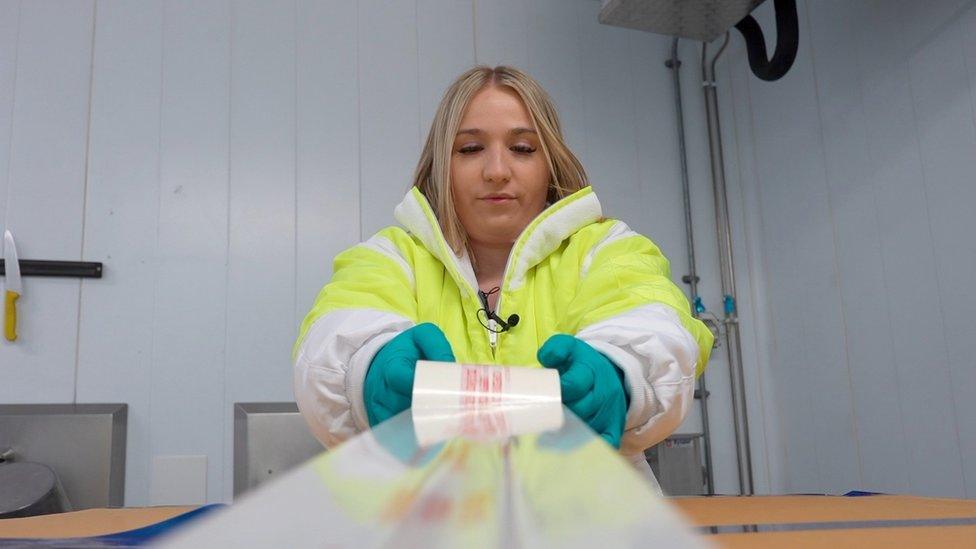
Products from different parts of a container are checked and then repacked
The team physically inspects between 40 and 70 containers each day from outside the EU, carrying out annual checks on 100,000 containers.
The health authority, which employs 100 staff, looks at labels and opens products, to see if they match. They also check documents against certificates.
Rose Waugh, 30, used to work in a school before becoming an inspection officer two years ago.
"We see a lot of chicken from Thailand, some from China, we see a lot of fish from Morocco and Ecuador," she says.
"On one occasion we noticed parasites in the mouths of the fish. They were taking over the tongues of Sea Bream so weren't safe to eat.
"That was pretty disgusting for colleagues to find, and rewarding to know we'd taken it out of the food chain".
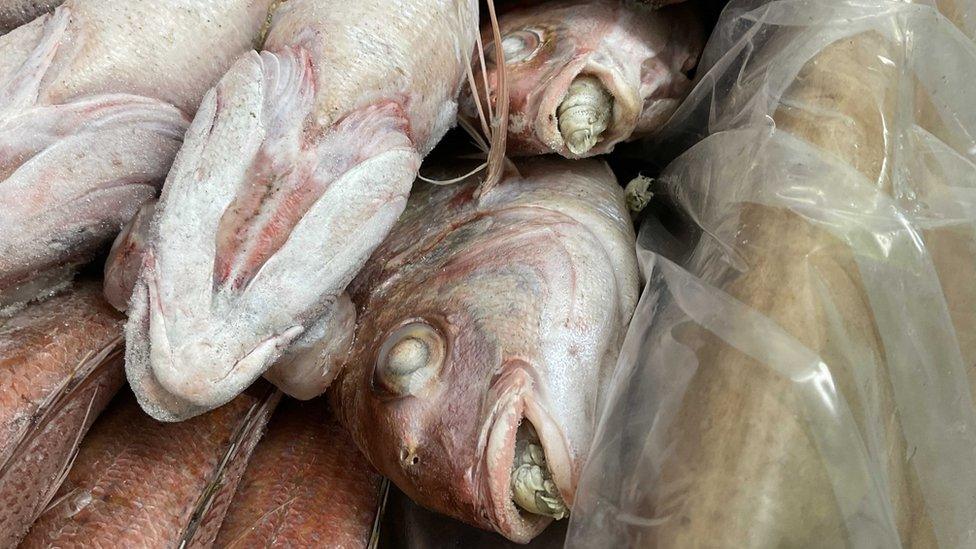
Seized sea bream infected with parasites taking over the tongues of fish
Port health authority veterinarian Damelis Quiñones heats up some of the cooked chicken, pulls it apart and tastes it to check it is not rotten.
"When things are frozen," she says, "the smell and texture is masked. Once it's cooked it will awaken the smell."
Ms Quiñones used to work in a slaughterhouse so knows the threat to the food chain from diseases like African swine fever. The pandemic also changed how they view infectious diseases.
"Most of the illnesses come from animals" Ms Quiñones says. "They pass from animals to people."
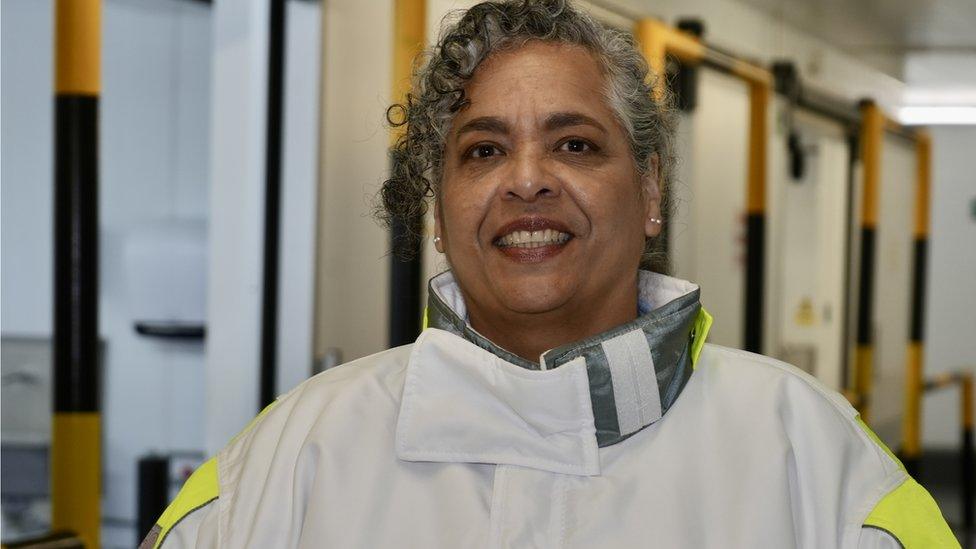
Ms Quiñones has to cook and taste a proportion of all the higher risk meat being imported
With the withdrawal from the EU expected to lead to new trade deals, such as importing more chicken from Brazil, Ms Quiñones believes food inspections will be of ever increasing importance.
"It's a constant surveillance and we cannot afford to slip down," she says. "As an island, Britain has a very good position in this and we have to take care of it."
Business support manager Colin Wilson, 40, ensures documents from importers are correct.
"As more and more markets open up across the world, we'll get more and more produce coming in, more exotic commodities, we have to be really on our toes," he said.
"It's a forever changing world, so we have to adapt and change with it."

Follow East of England news on Facebook, external, Instagram, external and Twitter, external. Got a story? Email eastofenglandnews@bbc.co.uk, external or WhatsApp us on 0800 169 1830
Related topics
- Published6 April 2023
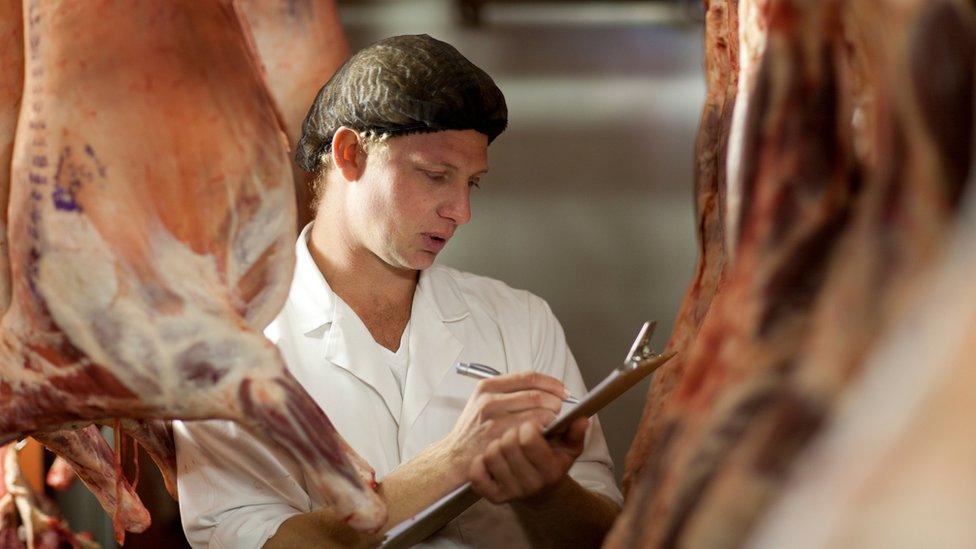
- Published2 July 2022
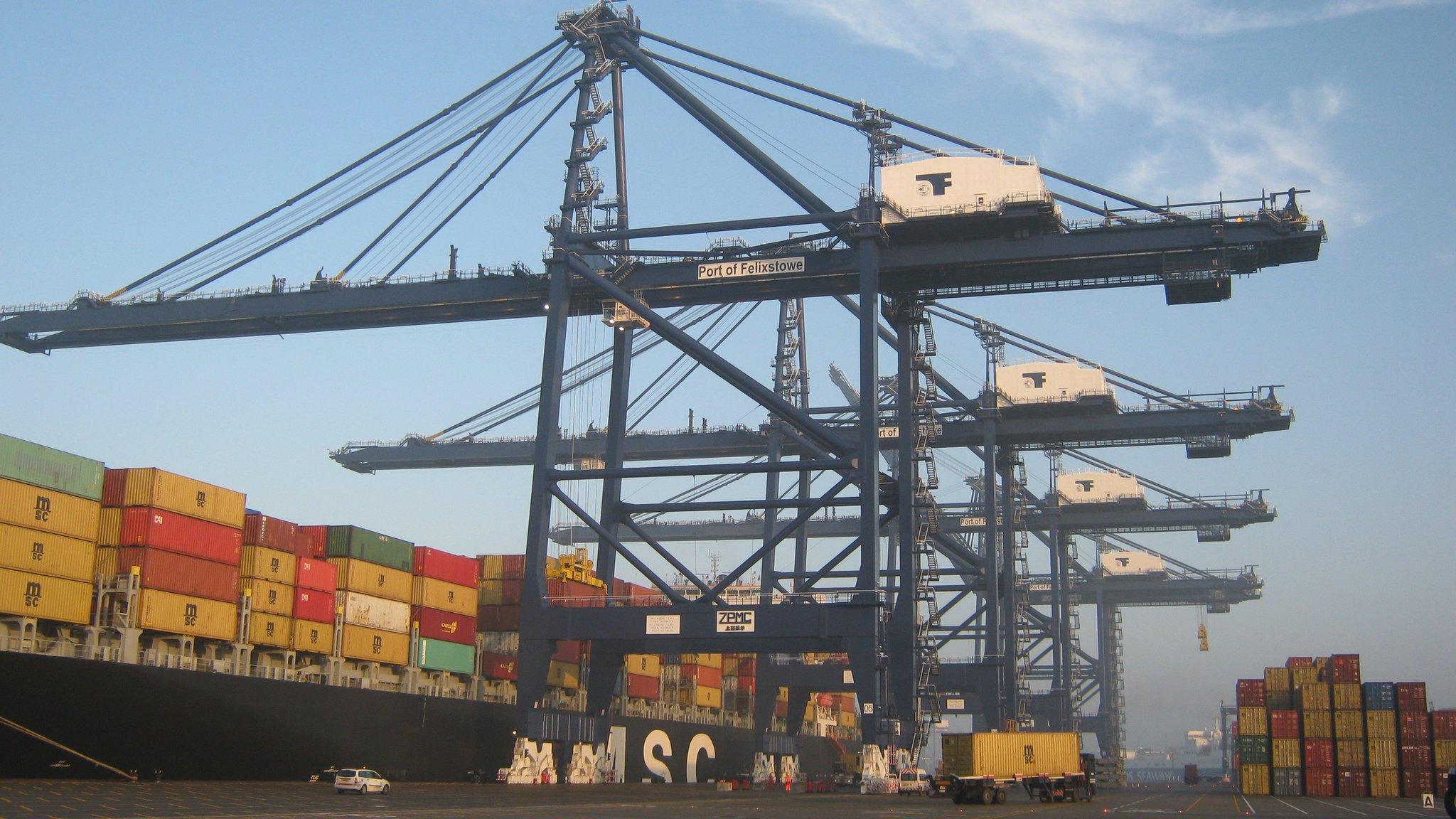
- Published14 September 2021
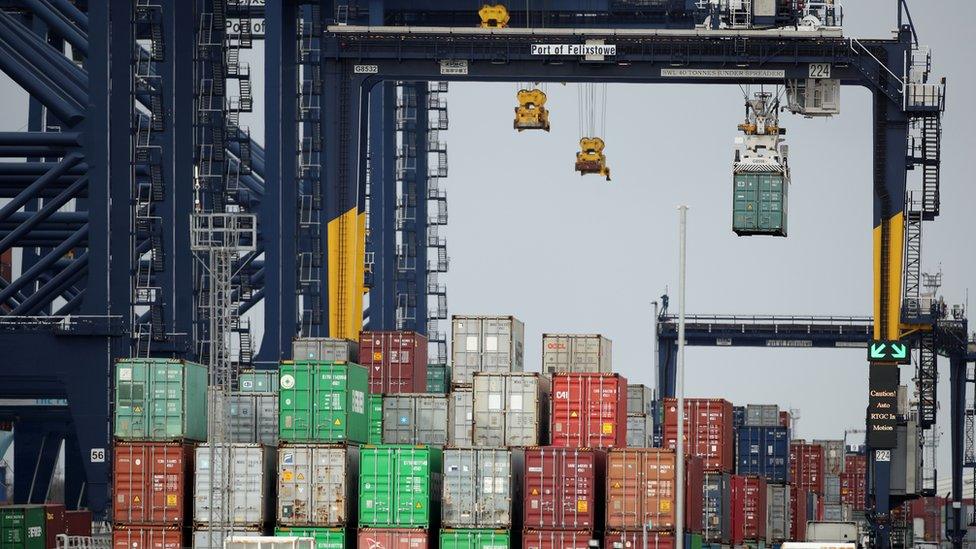
- Published11 March 2021
